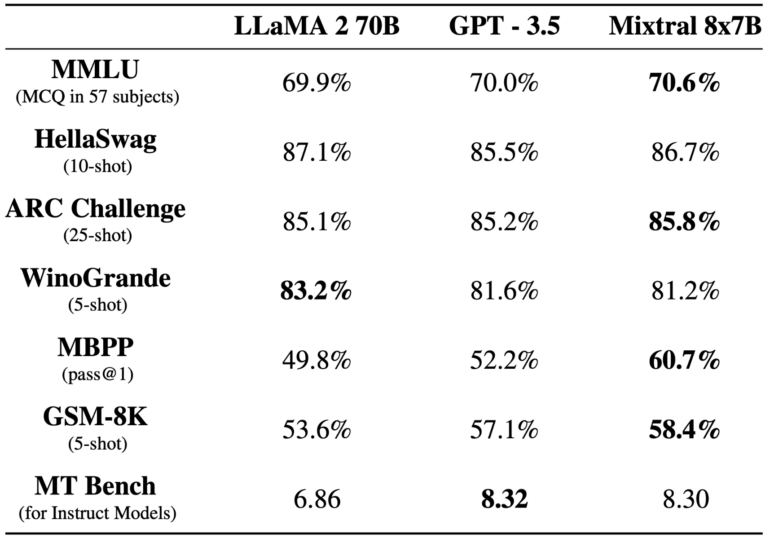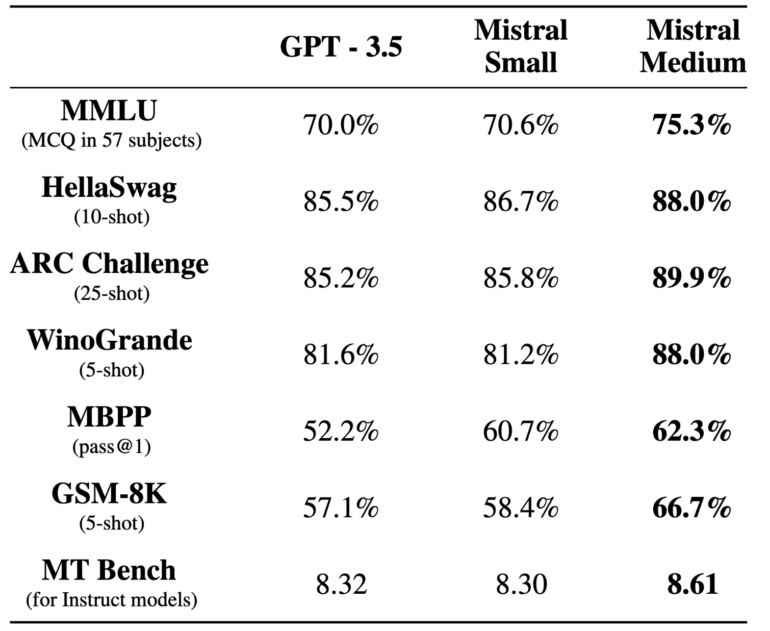Mistral AI raises $415 million and launches API service

Paris-based AI startup Mistral AI has raised 450 million euros (about $487) in a funding round led by Silicon Valley venture capital firm Andreessen Horowitz and early investor Lightspeed Ventures.
The seven-month-old company, founded by former Deepmind researchers from Alphabet Inc. and Meta Platforms Inc. and currently employing 22 people, is valued at about $2 billion. It is also releasing a new open-source model and providing access to its API platform.
Open-source software for chatbots and generative AI tools
Mistral AI develops open-source models to power chatbots and other generative AI tools. Similar to Meta with Llama, Mistral's business plan is to first achieve market penetration with its open-source models and then offer premium services around these models or charge for high-quality models.
Other investors in this round include Salesforce Inc, BNP Paribas, CMA CGM, General Catalyst, Elad Gil, Emerson Collective, Conviction, Bpifrance, La Famiglia, Eric Schmidt, New Wave, Motier Ventures and Sofina.
In September, Mistral released its first small-large language model, the capable Mistral 7B, which quickly caught on in the open-source community. With Mixtral MoE, Mistral has now released a mixture-of-experts model that follows the suspected GPT-4 architecture.

It networks eight 7B models and is said to outperform GPT-3.5 and Llama 2 with 70B in benchmarks. The model supports French, Italian, German, and Spanish in addition to English and offers a 32k context window.
Mistral launches API access
Mistral AI has also launched beta access to its first platform services, including three text chat endpoints and an embedding endpoint. The endpoints, named mistral-tiny, mistral-small (Mixtral MoE) and mistral-medium, offer access to different AI models, with the medium endpoint using a more capable prototype model that scores around 75 percent in the MMLU, significantly outperforming GPT-3.5 in this benchmark.

The platform offers customization techniques such as fine-tuning and direct preference optimization for easy-to-control models. Mistral-tiny works in English, while mistral-small and mistral-medium support multiple languages and codes.
The platform also includes an embedding model, mistral-embed, designed for retrieval purposes. The APIs comply with the common specifications for chat interfaces, or as Mistral puts it: "Our APIs follow the specifications of the popular chat interface initially proposed by our dearest competitor."
The capacity of the platform will gradually increase as it moves from beta access to general availability in 2024. Nvidia has supported Mistral AI with the integration of TRT-LLM and Triton.
Europe is finally getting more involved in AI
Before Mistral's funding, German AI company Aleph Alpha raised more than $500 million in a Series B financing round from a consortium of seven new and existing investors.
The funding allows Aleph Alpha to strengthen its position as a provider of generative AI applications in Europe and accelerate product development and scaling.
Aleph Alpha focuses on explainable and trustworthy approaches to generative AI and claims to operate the fastest commercial AI data center in Europe.
Mistral AI and Aleph Alpha are arguably the strongest providers of generative AI models in Europe today, challenging international competitors such as Meta, Anthropic, and OpenAI.
However, despite recent multi-million dollar investments, there is still an imbalance in funding compared to the US: OpenAI has received more than $10 billion from Microsoft alone, while Anthropic is backed by Google and Amazon with up to $6 billion. This is not a level playing field.
With its AI Act, the EU has also created an important legal framework for AI, especially for foundational models. The rules could spill over to the rest of the world, as has happened with some of the EU's data protection laws.
AI News Without the Hype – Curated by Humans
As a THE DECODER subscriber, you get ad-free reading, our weekly AI newsletter, the exclusive "AI Radar" Frontier Report 6× per year, access to comments, and our complete archive.
Subscribe nowAI news without the hype
Curated by humans.
- Over 20 percent launch discount.
- Read without distractions – no Google ads.
- Access to comments and community discussions.
- Weekly AI newsletter.
- 6 times a year: “AI Radar” – deep dives on key AI topics.
- Up to 25 % off on KI Pro online events.
- Access to our full ten-year archive.
- Get the latest AI news from The Decoder.